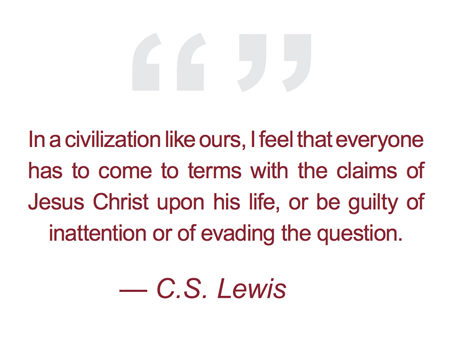Back to series
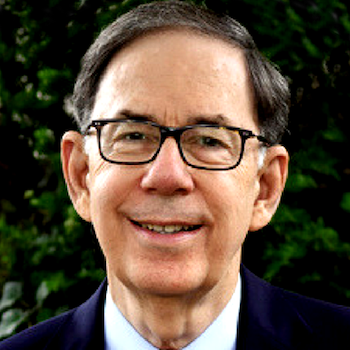
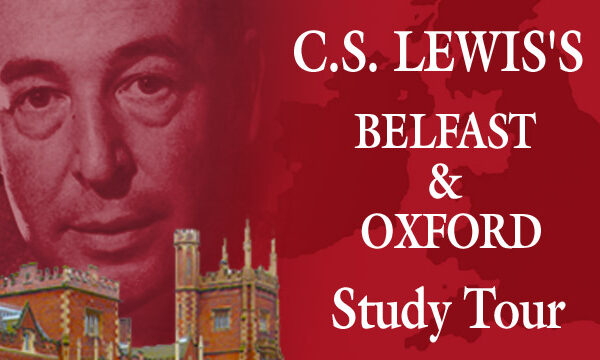
Go, Make Disciples of All Nations
Click here to open a Print - Friendly PDF
 The command to “go … and make disciples of all nations” (Matt. 28:19)1 is one that most Bible-believing Christians hold dear, whether they personally practice it or not. Unfortunately, it is not always well understood. I suspect most people assume that they understand it as written. But after many years of life in the church and in ministry, I have concluded that while some people do understand what Jesus meant by these words, most do not. Join me as we explore the two phrases “go and make disciples” and “all nations.” Then determine for yourself how accurate your understanding is.
The command to “go … and make disciples of all nations” (Matt. 28:19)1 is one that most Bible-believing Christians hold dear, whether they personally practice it or not. Unfortunately, it is not always well understood. I suspect most people assume that they understand it as written. But after many years of life in the church and in ministry, I have concluded that while some people do understand what Jesus meant by these words, most do not. Join me as we explore the two phrases “go and make disciples” and “all nations.” Then determine for yourself how accurate your understanding is.
Making Disciples
The command to “go and make disciples” has for many decades been understood to be synonymous with “go and make converts.” In other words, go out to evangelize nonbelievers and help them come to faith in Jesus Christ. This is correct as far as it goes. But it doesn’t go far enough. We definitely need to go out with the intention of evangelizing people; we definitely need to share the gospel message and help them come to faith in Christ; we also definitely need to help them affirm that faith by being baptized into the fellowship of the church. All of these things are essential and belong to the first phase of making disciples.
However, there is a second phase: “teaching them to observe [obey] all that I have commanded you” (v. 20). Tragically, this phase has been widely neglected in the church for centuries. Of course, a few have always taken it seriously, and their lives have stood out and brought glory to God, whether they were great leaders or simple uneducated peasants. And a few take it seriously today. But for the most part, it is neglected. “
Wait,” you say, “my church has a four-week new-member class and also classes on the basics of the faith.” That is great news! But does it encompass what Jesus meant by “teach them to observe [obey] all that I have commanded you”? Let’s look at the content Jesus specifies, the way it is to be taught, and the outcome He intends. In terms of content, we are not told to figure this out for ourselves. No, Jesus says to focus on what He commanded His disciples while He was with them. This material is found in the Gospels, especially Matthew, with its five major teaching sections.2 Indeed, Matthew appears to have been designed as a discipleship manual.
From the early second century, “among all the New Testament writings and especially among the gospels, Matthew seems to have been the only one to have had a normative role and to have created the climate of Christianity at large.” And “it is a fact that mainstream Christianity was, from the early second century on, to a great extent Matthean Christianity.”3 The focus on “all that I commanded you,” should not be restricted to only specific commands. It certainly includes them but is meant to include all of Jesus’ teachings. Nor is it simply a matter of learning information, though that is essential; what we learn must be internalized. Jesus’ moral and ethical instruction is to be a practical guide to living a life that pleases God. Giving priority to the teaching of Jesus certainly does not minimize other parts of the Bible; in fact, it will send us back to the Old Testament and forward to the New Testament as we seek more light.
 How is this material to be taught? Jesus demonstrates how. He began by forming a small group of disciples who wanted to follow and learn from Him. This initiated a process that included times of larger group instruction, smaller group discussion/interaction, one-on-one counsel and guidance, and opportunities to practice what they were learning.
How is this material to be taught? Jesus demonstrates how. He began by forming a small group of disciples who wanted to follow and learn from Him. This initiated a process that included times of larger group instruction, smaller group discussion/interaction, one-on-one counsel and guidance, and opportunities to practice what they were learning.
What is the intended outcome or goal of this process? In a word, transformation. This occurs as we internalize Jesus’ teachings and obey them in faith and love, for in so doing we become more and more like Him over time. It goes without saying that this is the work of a lifetime, not just a few weeks in a basics class. This Christ-centered transformation was the lifelong work of Jesus’ greatest disciple, the apostle Paul, who urged all believers to “be imitators of me, as I am of Christ” (1 Cor. 11:1), and said: “Him we proclaim, warning everyone and teaching everyone with all wisdom, that we may present everyone mature in Christ. For this I toil, struggling with all his energy that he powerfully works within me” (Col. 1:28–29).
This is where the church has failed for a very long time and is still failing. Making disciples involves not just teaching from the pulpit or classroom, though both are essential. Nor does it involve just meeting with a small group to discuss and process what is being taught, though that, too, is essential. It involves, alongside these, personal interaction and friendship between a younger, less mature believer and an older, more mature believer. In such a relationship, the younger believer is mentored and coached about how to understand and apply the teachings of Jesus to daily life. This is a labor of love, takes time, and appears impossible for larger churches — which is true if the pastor is the lone disciple maker, or even with other the pastors and elders. But by starting small and building a core of capable disciplers over time, even a large church can develop a culture of disciple making and transformational discipleship.
The failure of the church to teach, train, and nurture its members to maturity in Christ is at the heart of why so many believers today are spiritually immature, entangled in the sins of the flesh, immersed in worldliness, and not much different from nonbelievers. Is it any wonder that the church is neither credible nor attractive to the watching world? Surely this grieves God. And just as surely, God will enable and empower any person or church that elevates disciple making to a top priority.
Of All Nations
 The second phrase we want to explore, “of all nations,” spells out the scope of the mission of disciple making. The English words all nations are a translation of the Greek, panta ta ethne. That last word, ethne, is the root of the English word “ethnic.” The idea here is of ethnic groups. The Bible doesn’t speak in terms of races but of ethnicities; there is only one race — the human race. The Scriptures teach that all human beings originated from one couple and are part of the human race but have differentiated into various ethnic groups (Gen. 1:26–28, Acts 17:26). Thus Jesus is saying, “Go, make disciples from among all ethnic groups” — Africans, Asians, Caucasians, and others, and the many subgroups of each. This is a vast expansion of His earlier commission to go only “to the lost sheep of the house of Israel” (Matt.10:6).
The second phrase we want to explore, “of all nations,” spells out the scope of the mission of disciple making. The English words all nations are a translation of the Greek, panta ta ethne. That last word, ethne, is the root of the English word “ethnic.” The idea here is of ethnic groups. The Bible doesn’t speak in terms of races but of ethnicities; there is only one race — the human race. The Scriptures teach that all human beings originated from one couple and are part of the human race but have differentiated into various ethnic groups (Gen. 1:26–28, Acts 17:26). Thus Jesus is saying, “Go, make disciples from among all ethnic groups” — Africans, Asians, Caucasians, and others, and the many subgroups of each. This is a vast expansion of His earlier commission to go only “to the lost sheep of the house of Israel” (Matt.10:6).
Although this was actually another stage in the fulfillment of God’s promise to Abraham that “in you all families of the earth shall be blessed” (Gen. 12:3), it was very difficult for the Jews of Jesus’ day to accept. They saw themselves as God’s chosen people and looked down on non-Jews. Gentiles were often despised and avoided. This was especially true of Samaritans, who were of ethnically mixed ancestry and heterodox beliefs. Although Jesus focused His ministry almost exclusively on the Jews, He gave hints of the coming commission to all ethnic groups by His interactions with the Samaritans. On one occasion, He rebuked James and John, who wanted to call down fire upon the Samaritans (Luke 9:51–56). Samaritans were not to be hated and destroyed. On another, He confronted the Jews (and His disciples) with their own religious and ethnic pride by making the Good Samaritan a hero in His teaching about loving one’s neighbor (Luke 10:25–37). Samaritans were to be loved. He more clearly foreshadowed the coming Gentile mission by deliberately engaging a Samaritan woman in conversation and leading her to faith in Him as the Messiah—and through her testimony many other Samaritans (John 4:1–42). Samaritans were to be brought to salvation. These were first fruits of the “other sheep that are not of this [Jewish] fold. I must bring them also, and they will listen to my voice. So there will be one flock, one shepherd” (John 10:16).
How did the commission to make disciples from all ethnic groups unfold once Jesus returned to heaven? We see this in the Book of Acts, where Jesus says, “But you will receive power when the Holy Spirit has come upon you, and you will be my witnesses in Jerusalem and in all Judea and Samaria, and to the end of the earth” (Acts 1:8). And this is exactly what transpires throughout Acts. Peter, John, Stephen, and others preached the gospel around Jerusalem (Acts 2–7). Philip went to Samaria, where he preached Christ and saw many come to faith (Acts 8:4–8). He was then sent by an angel to explain the gospel to a high-ranking Ethiopian court official, who was on his way back home after a visit to Jerusalem (Acts 8:26–38). He came to faith in Christ and continued his journey home, taking the gospel to Africa. From Acts 13 to the end of the book, we see Paul preaching the gospel to people of various ethnicities in the Roman world, from Antioch, through Asia Minor to Greece and Rome.
Peter had a more difficult time grasping what was so clear to Paul. Even though he had received the Great Commission directly from the lips of Jesus, and even though he was the chief of the apostles, he was still blind in some respects. Although he was comfortable taking the gospel to the Jewish people, it took a supernatural vision from God, followed by a supernatural confirmation, to free him from his blindness and prejudice toward the Gentiles. The story takes up the entire tenth chapter of Acts and is too long to quote here. But a brief summary will make the point: God sent an angel to a God-fearing Roman centurion, instructing him to send messengers to a house where Peter was visiting. Just before they arrived, God gave Peter an extraordinary vision, repeated three times, that completely changed his thinking about people from other ethnic groups. Immediately after this, the messengers arrived and invited him to the home of Cornelius to share whatever God had given him to say to them. Upon arrival, Peter said to Cornelius and those gathered with him: “You yourselves know how unlawful it is for a Jew to associate with or to visit anyone of another nation, but God has shown me that I should not call any person common or unclean. So when I was sent for, I came without objection” (Acts 10:28–29). At Cornelius’s invitation, Peter began to preach the gospel, but
While Peter was still saying these things, the Holy Spirit fell on all who heard the word. And the believers from among the circumcised who had come with Peter were amazed, because the gift of the Holy Spirit was poured out even on the Gentiles. For they were hearing them speaking in tongues and extolling God. Then Peter declared, “Can anyone withhold water for baptizing these people, who have received the Holy Spirit just as we have?” And he commanded them to be baptized in the name of Jesus Christ. (Acts 10:44– 48)
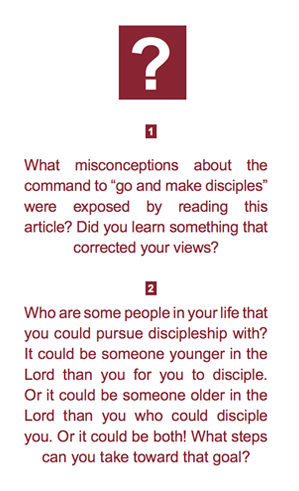
The admission of Gentiles into the church provoked considerable disturbance among the more legalistic members of the Jerusalem mother church, and Peter was called in to explain himself. Peter simply recounted what had happened, and “When they heard these things they fell silent. And they glorified God, saying, ‘Then to the Gentiles also God has granted repentance that leads to life’” (Acts 11:18). This was one of the most crucial breakthroughs in all church history. Without it, the Christian church would not have survived.
One would think that Peter had gotten the point of God’s acceptance of people from any and every group on equal terms with Jews, but old thinking and patterns of behavior sometimes take a while to change. This was evident when Peter came to Antioch, where Paul had been ministering to a mixed congregation of Jews and Gentiles:
But when Cephas came to Antioch, I opposed him to his face, because he stood condemned. For before certain men came from James, he was eating with the Gentiles; but when they came he drew back and separated himself, fearing the circumcision party. And the rest of the Jews acted hypocritically along with him, so that even Barnabas was led astray by their hypocrisy. But when I saw that their conduct was not in step with the truth of the gospel, I said to Cephas before them all, “If you, though a Jew, live like a Gentile and not like a Jew, how can you force the Gentiles to live like Jews? (Gal. 2:11–14)
This sobering story challenges us today to examine ourselves and see if we are harboring prejudice against people of any ethnic group and are behaving hypocritically by not warmly embracing them as fellow heirs of the grace of God through faith in Christ alone.
Paul was very clear about how the work of Jesus the Messiah destroyed the wall of separation between Jews and Gentiles. Writing to the Gentile church in Ephesus, he said,
But now in Christ Jesus you who once were far off have been brought near by the blood of Christ. For he himself is our peace, who has made us both one and has broken down in his flesh the dividing wall of hostility by abolishing the law of commandments expressed in ordinances, that he might create in himself one new man in place of the two, so making peace, and might reconcile us both to God in one body through the cross, thereby killing the hostility. And he came and preached peace to you who were far off and peace to those who were near. For through him we both have access in one Spirit to the Father. (Eph. 2:13–18)

Christ’s dismantling of the wall of separation between Jews and Gentiles was revolutionary; when put into practice it would abolish many of the divisions that fracture and fragment human relationships and community. Paul made this clear not just to the Ephesian believers but everywhere he ministered. To the church in Galatia, he said: “For as many of you as were baptized into Christ have put on Christ. There is neither Jew nor Greek, there is neither slave nor free, there is no male and female, for you are all one in Christ Jesus” (Gal. 3:27–28). Similarly, he assured the church in Colossae that “here there is not Greek and Jew, circumcised and uncircumcised, barbarian, Scythian, slave, free; but Christ is all, and in all” (Col. 3:11). All of these markers of identity in the natural world are superseded by our new identity in Christ and the kingdom of God, where we are bound together in a new humanity.
The multiethnic evangelizing and disciple making and the multiethnic churches that resulted once the church broke out of its Jewish cocoon show us the outworking of the Great Commission in New Testament times (and for a while afterward). These churches were an important part of why the early Christian movement grew so fast and so strong. They were communities of love in which the barriers of ethnicity, social class, economic status, and literacy that normally divide people had somehow been transcended. That was unheard of and stimulated curiosity and openness to explore what was behind such a wonderful reality.
In today’s world of division, strife, and hatred, Jesus’ command and commission to make disciples from people of all ethnic groups is more important than ever. When the world sees communities of Christians living as the new humanity and loving one another across the barriers that normally separate people, it will take notice. Opportunities to explain the reason for that love will open up, and the message of Christ’s redeeming love can be shared, as well as the destiny of all who trust and follow Christ and will one day become part of that
great multitude that no one could number, from every nation, from all tribes and peoples and languages, standing before the throne and before the Lamb, clothed in white robes, with palm branches in their hands, and crying out with a loud voice, “Salvation belongs to our God who sits on the throne, and to the Lamb!” (Rev. 7:9–10)
Personal Response
How do we personally respond to this call? The first step is to commit ourselves to sharing the gospel with anyone and everyone, regardless of ethnicity, and helping them grow in Christlikeness. Many people get stuck right here. They are hobbled by the idea that because they do not have the gift of evangelism they cannot lead others to Christ. Relatively few are called to be evangelists, but every believer is called to be a witness of Christ — to share what Christ has done for them, what He means to them and the gospel message, which is the foundation of it all. Many also get stuck when they think about helping others grow, since they lack seminary training. But such training is not a requirement. Any believer who has a reasonably good knowledge of the Bible and a reasonably healthy Christian life can share with someone less far along about the teachings of Jesus and how to follow them— providing, of course, that they are doing so themselves. There are some excellent resources to use for this purpose, especially those of Greg Ogden, beginning with his Discipleship Essentials.
If this commission sounds daunting to you, take comfort that it was daunting to Jesus’ original disciples. And take even more comfort in His promise to them and to us: “I am with you always, to the end of the age” (Matt. 28:20). The Spirit of Christ, the Holy Spirit, will be with us every step of the way.
|
Notes: |
|||

Thomas A. Tarrants
Author, President Emeritus, CSLI Thomas A. Tarrants is President Emeritus of the C.S. Lewis Institute. After serving twelve years as president and nine years as vice President, he retired from his position as Vice President for Ministry and Director, Washington Area Fellows Program, with CSLI in June 2019. He holds a Masters of Divinity Degree, as well as a Doctor of Ministry Degree in Christian Spirituality. Tom is an ordained minister in the Evangelical Church Alliance and a member of the Evangelical Theological Society. He spends his time writing, mentoring, consulting and traveling. His life story is told in Consumed by Hate, Redeemed by Love, published by Thomas Nelson Publishers.Recommended Reading:
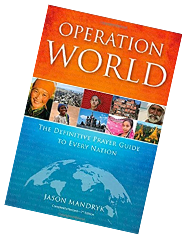 Jason Mandryk, Operation World: The Definitive Prayer Guide to Every Nation, 7th edition (InterVarsity Press, 2010)
Jason Mandryk, Operation World: The Definitive Prayer Guide to Every Nation, 7th edition (InterVarsity Press, 2010)
As we grow in our conviction that the gospel must go to every nation, we will want to be informed about how to pray for every people group. We’ll also find great encouragement from hearing how God is working around the world today. This country-by-country prayer guide is packed with important data and gripping stories about how the gospel is advancing in our very day.
 COPYRIGHT: This publication is published by C.S. Lewis Institute; 8001 Braddock Road, Suite 301; Springfield, VA 22151. Portions of the publication may be reproduced for noncommercial, local church or ministry use without prior permission. Electronic copies of the PDF files may be duplicated and transmitted via e-mail for personal and church use. Articles may not be modified without prior written permission of the Institute. For questions, contact the Institute: 703.914.5602 or email us.
COPYRIGHT: This publication is published by C.S. Lewis Institute; 8001 Braddock Road, Suite 301; Springfield, VA 22151. Portions of the publication may be reproduced for noncommercial, local church or ministry use without prior permission. Electronic copies of the PDF files may be duplicated and transmitted via e-mail for personal and church use. Articles may not be modified without prior written permission of the Institute. For questions, contact the Institute: 703.914.5602 or email us.
-
Recent Podcasts
A Welcome Change in Apologetics
by Randy Newman, Aimee Riegert on April 19, 2024We’re burdened for our friends who don’t know...Read More
-
Questions That Matter Podcast – Samuel James and Digital Liturgies
by Samuel James, Randy Newman on April 19, 2024
-
The Side B Stories – Dr. James Tour’s story
by Jana Harmon, James Tour on April 12, 2024
-
Recent Publications
Isn’t Morality Relative?
by Christopher L. Reese on April 1, 2024It is widely accepted in the Western world...Read More
-
Do Muslims and Christians Worship the Same God?
by Andy Bannister on March 1, 2024
-
Artificial Intelligence and Its Impacts on Humanity
by John Lennox on February 13, 2024
0
All Booked
0.00
All Booked
0.00
All Booked
20599
GLOBAL EVENT: 2024 Study Tour of C.S. Lewis’s Belfast & Oxford
https://www.cslewisinstitute.org/?event=global-event-2023-study-tour-of-c-s-lewis-belfast-oxford-2&event_date=2024-06-22®=1
https://www.paypal.com/cgi-bin/webscr
2024-06-22

Next coming event
Days
Hours
Minutes
Seconds
GLOBAL EVENT: 2024 Study Tour of C.S. Lewis’s Belfast & Oxford
On June 22, 2024 at 12:00 pmat Belfast, Northern Ireland & Oxford, EnglandTags
Speakers

Thomas A. Tarrants
Author, President Emeritus, CSLI
Team Members



